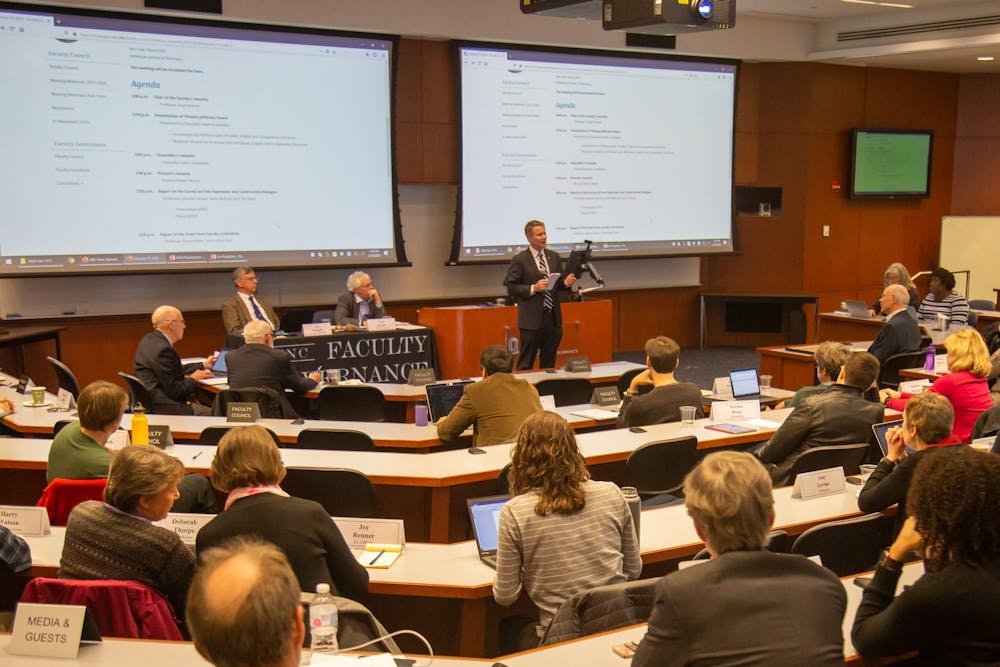Chancellor Kevin Guskiewicz said he will do whatever possible to ensure that Silent Sam does not return to UNC’s campus at a Faculty Council meeting on Friday.
“It doesn’t belong on our campus,” he said. “And I will continue to work with our Board of Trustees, our system office and Board of Governors on this.”
Interim Chairperson of the Faculty Lloyd Kramer opened the meeting with remarks about fear at UNC and beyond — including, he said, fears that white supremacist groups may come to campus.
“I think people have had fears forever, but I am so struck — I’ve been at Carolina now over 30 years — how many people have fear right now,” Kramer said.
Kramer brought up students’ fears about free expression and faculty members’ fears about year-to-year contracts, topics that were discussed later in the meeting. He said the meeting would talk about empowering processes that might help the University overcome fear.
“(Fear) could be an opportunity for the University,” he said. “Because teaching and research at a university are a way to challenge fear, and so gaining new knowledge demystifies exactly what people fear, and this is why education is so empowering.”
Chancellor's remarks
Guskiewicz gave several updates to the faculty during his remarks, including information about the recent 2020 Summit on Safety and Belonging. He said a number of helpful recommendations came out of the summit, including recommendation for a more proactive active shooter training for the faculty.
He also addressed concerns that the Unsung Founders Memorial in McCorkle Place has been sinking, saying the facilities team will put a plan into motion to raise the memorial over the late spring and summer. He said the Commission on History, Race and a Way Forward may decide to add other elements to the area.




